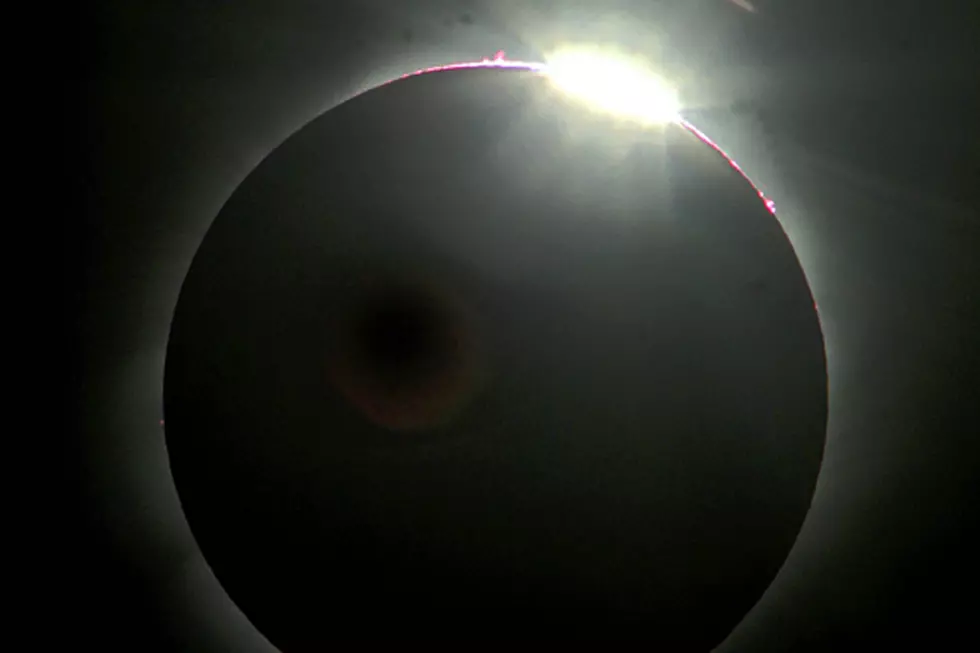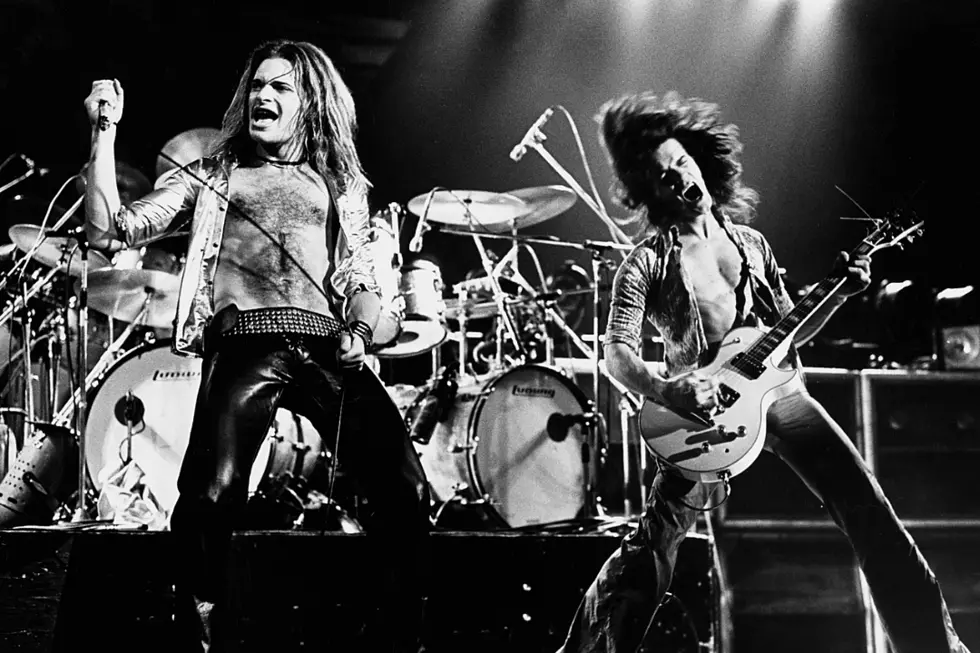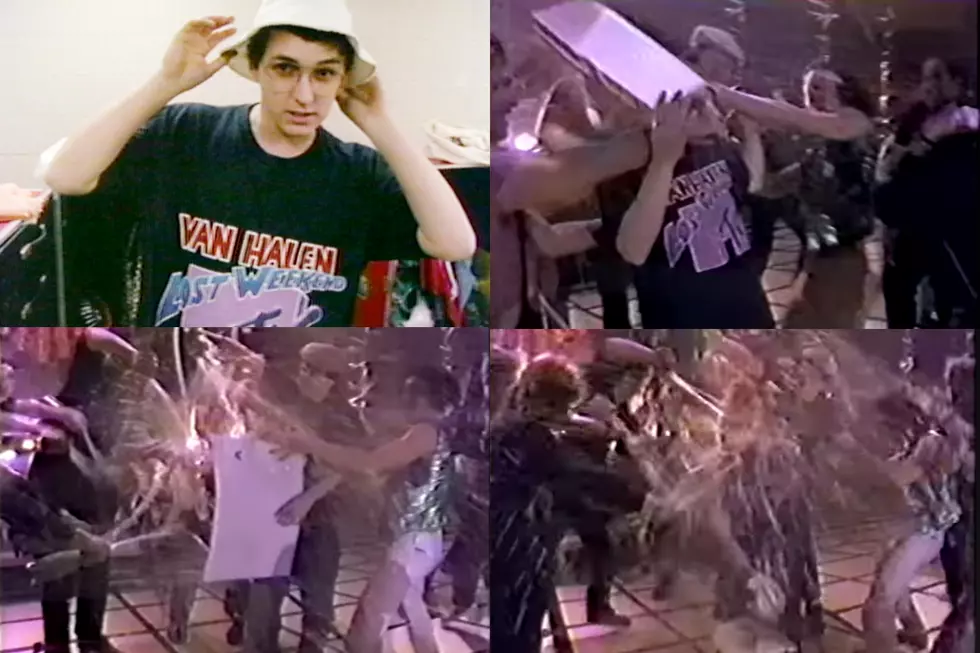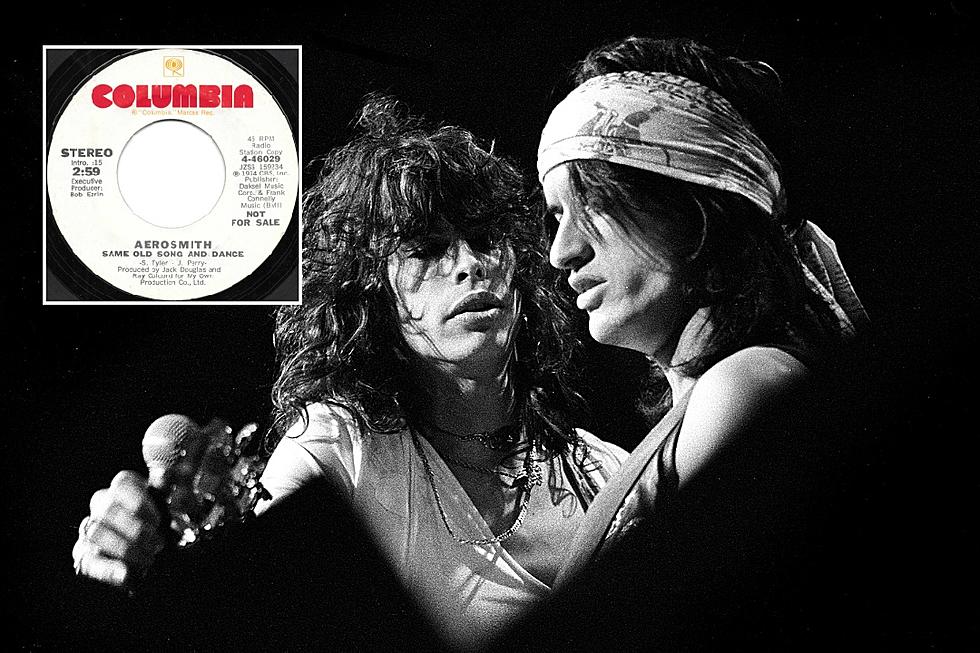
Nelson’s Long Journey to Their Debut Album, ‘After the Rain’
By the time they reached their early 20s, Matthew and Gunnar Nelson had already seen multiple careers' worth of personal and professional ups and downs — and they hadn't even released their first album yet.
During the earliest stage of their music career, the duo were chiefly known for being the twin sons of Ricky Nelson, whose death in a 1985 plane crash burdened them with notoriety and expectations they couldn't have been prepared to shoulder. A year after his death, they stepped out onto the national stage as the musical guests on an episode of Saturday Night Live — a gig that, while it's barely remembered today, ended up having a profound impact on the course they'd ultimately follow.
"I was a drummer who sang backup vocals and then Matthew and I performed on Saturday Night Live," Gunnar tells UCR's Matt Wardlaw in an exclusive interview. "We did that one performance and I just had this moment on the plane ride back to L.A. — this really clear thought, like it was a thought from somewhere else. If we’re going to do this like we can, I need to learn how to play guitar and come up front. I need to do this with my brother and we need to do this together."
Given that Gunnar had never played guitar, his brother naturally questioned this decision — as Gunnar tells it, Matthew "thought I was insane" — but they realized their status as Hollywood scions gave them an opportunity to focus on music at a level most people couldn't afford to have.
"If a guy says he’s been playing guitar for 10 years, odds are, if he’s lucky, he’s had his instrument in his hand an hour a day," notes Gunnar. "But what if I took a year off and all I did for that year was play guitar for 10 hours a day, every day? Lessons, or whatever it took? It stands to reason that I’d have the same kind of experience as a guy that’s been doing it for 10 years, right?"
Armed with four chords from Matthew and a pile of Star Licks instructional tapes, Gunnar buckled down and learned to play, and when the revamped Nelson emerged from hibernation, the twins set about honing their new sound with the same level of intense dedication, tossing out dozens of songs while working toward the demos that would eventually score them a development deal with A&R legend John Kalodner at David Geffen's new DGC imprint.
It didn't happen overnight, however. Working in tandem with co-writer and eventual co-producer Marc Tanner, Gunnar and Matthew were rejected on a regular basis by Kalodner, who liked what he heard enough to keep listening, but not enough to offer Nelson a contract. The turning point came when the trio finished writing "(Can't Live Without Your) Love and Affection," an instantly memorable song that would ultimately serve as the leadoff track on their DGC debut, After the Rain, as well as their first single — and first No. 1 hit.
As Gunnar tells it, the day they played the song for Kalodner, they weren't supposed to meet with him, and were warned that if they disrupted his schedule to play a subpar song, they ran the risk of turning him off for good — but after over a year of going back and forth while sharpening their songwriting chops, they decided they couldn't wait.
Watch Nelson Perform 'After the Rain'
"We busted into John Kalodner’s office and went in there without an appointment, which you don’t do, and we said, 'You’re going to sit down, shut up and you’re going to listen,'" recalls Gunnar. "We played him 'Love and Affection' and a big smile came over his face when we were done and he said, 'That is exactly the balls I was waiting to get from you guys for a year and I hadn’t seen it yet. But the way I look at it boys, if we’re going to do this together, you’re going to have a lot of haters and there’s going to be a lot of people that want to take you down. I needed to see that you had the stones to march to your own drum.' He loved the song, and we got our development deal that day."
When After the Rain arrived on June 26, 1990, "Love and Affection" had already started moving up the charts; the single, like the album, sat right in the sweet spot of what Gunnar today terms "confidence rock," and was big and loud enough to gain traction at rock radio while still having enough of a pop sheen to make major inroads at Top 40 — a sound Gunnar describes as "heavy metal Hollies."
In fact, the album was initially envisioned as having a harder edge. Noting that they had to battle the label to get Tanner behind the boards for the album, Gunnar recalls that they were originally asked to work with established rock producers Duane Baron and John Purdell, neither of whom panned out. After muddling through a fruitless stretch of sessions, they finally clicked with Tanner and co-producer David Thoener, who helped synthesize the Nelsons' influences into a modern, eminently radio-friendly blend.
"We were kind of feeling our way. ... We thought it was going to be a straight-up rock record," Gunnar muses. "Nelson was really interesting, because to a lot of people, it was too heavy to be played on pop radio and it was too light to be played on metal radio. But it’s important to note that we never really came from a blues background. We grew up in Southern California, so our influences were country-rock and folk and things that were melodic that were happening with Crosby, Stills and Nash and Jackson Browne and our dad’s music with the Stone Canyon Band."
While no one would ever mistake After the Rain for a Laurel Canyon singer-songwriter record, the songs were all squarely rooted in that era's guitar-based, harmony-rich tradition, which resulted in a deep well of singles for the label to pull from as the album continued its ascent. When Rain finally finished its year-plus run on the charts, the band had four Top 40 singles to its name: "Love and Affection," the title track (No. 6), "More Than Ever" (No. 14), and "Only Time Will Tell" (No. 28).
Unfortunately for Nelson, by the time they got off the road for After the Rain, they faced a series of professional reckonings. Like a lot of young acts, they were chagrined to find themselves in debt to their label after releasing a huge hit record — and to make matters worse, the label rejected their planned follow-up, Imaginator, demanding the band go back to the studio and start over.
Watch Nelson Perform '(Can't Live Without Your) Love and Affection'
"Now, I’ve got the benefit of hindsight and being able to look back on things and the way things really happened, over a span of decades," Gunnar tells UCR. "But when you’re in the middle of it and stuff, trying to make sense of that whole thing, all we knew was like, 'God, we made our record company 23 million dollars and the next thing you know, we can’t get our album released.' It’s a little bit frustrating."
By the time Nelson and DGC were able to agree on a new collection of songs, five years had passed – and when that album, Because They Can, arrived in 1995, the band's fans had moved on. The record failed to chart, ending Nelson's time at the label and beginning a period that found them focusing on their overseas audience while sporadically recording and pursuing a variety of outside projects.
But if "confidence rock" lost favor with audiences in the '90s, it retained a cult worldwide following whose devotees continued to hold up After the Rain as a particularly well-crafted example of a genre whose sound once defined the mainstream. In 2010, 20 years after its release, Nelson returned to that sound to give Rain a belated sequel, Lightning Strikes Twice, while releasing a separate disc of demos (Before the Rain) and a live LP from the era (Perfect Storm).
Fast forward to 2015, and Gunnar and Matthew said their album Peace Out closed a 25-year chapter of their career. "I’m at the same place our dad was when he put his new sound together with the Stone Canyon Band and really made a statement that, 'Hey, this is what I’m doing now. I liked that early ‘50s stuff, but I’m doing this country-rock stuff now,'" Gunnar explains. "Matt and I are making music now and what we’ve got coming up, I want you to imagine a modern take on the Everlys making music nowadays. It’s very cool, really brother-oriented song-centric stuff and the nucleus again is the two of us playing and singing together."
Still, even if Peace Out represented the final album Nelson intended to release in this vein, Gunnar insists he and his brother remain very proud of After the Rain and its successors. And despite the painful period that followed immediately after, they still look back on their first flush of success with a great degree of fondness.
"You know what’s really cool? It's being able to look back on that record and everything that surrounded it and the fact was that Matt and I really were the bookend to a whole genre of music," marvels Gunnar. "It was the last giant success from that whole confidence rock era — and this is back before cell phones and Facebook and the internet, so we could get away with everything on the road. That is the time to have 20,000 screaming chicks at every show that you play for 13 months. Man, do that when you are 21 and 22 – it was awesome! It was awesome! It was just a great, great time. I don’t think anyone will ever see that kind of time again the way that we were able to enjoy it, so I’m really grateful for it."
Top 100 Albums of the '90s
More From Ultimate Classic Rock









